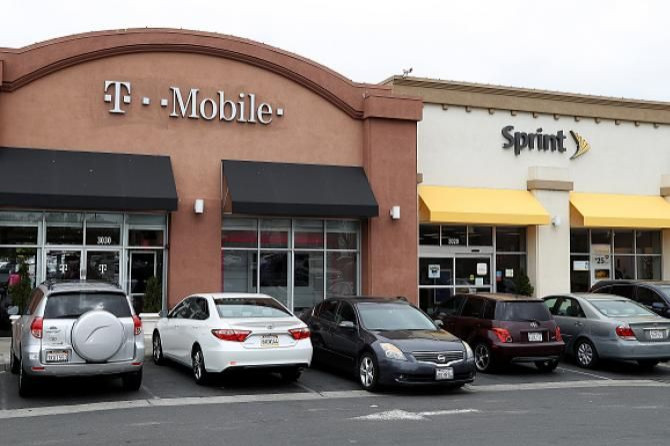T-Mobile, Sprint Merger Have New Allies In Texas, Nevada: Here's Why They're Supporting Deal

Texas and Nevada announced withdrawal from the lawsuit of states against the SprintT-Mobile merger and said they will no longer block the deal.
Although the merger deal has won the nod of regulators such as the Justice Department (DOJ) and the Federal Communications Commission (FCC), many states are not convinced about the deal and have legally challenged the acquisition plan.
Colorado and Mississippi have already dropped their challenge. Now 13 states and the District of Columbia are in the fray to fight the merger deal saying the deal is anti-consumer and leads to diminished competition and price rise.
Promises to Texas and Nevada
According to the CNBC report, Sprint and T-Mobile have promised Texas that there will be no price hike on wireless for five years after the deal’s completion and they will accelerate building out a 5G network for Texans after the deal’s closure.
In a statement, Texas Attorney General Ken Paxton echoed those commitments: “Our objectives in joining the initial lawsuit were to protect Texans from unnecessary price hikes and to ensure that Texans living in both urban and rural areas will not get stuck with substandard service as the market for wireless telecommunication services evolves to adopt new standards of technology with the power to transform the Texas economy.”
Paxton added that the “agreement achieves those objectives.” He was the only Republican attorney general who joined the lawsuit.
Nevada has been assuaged by the Sprint and T-Mobile duo that it would roll out a 5G network to 83 percent of the state’s rural communities at a lower price plan.
Nevada Attorney General Aaron Ford said: “Beyond these benefits, the New T-Mobile will make a significant investment to enhance service to our Native American Tribal communities, contribute to programs that enhance opportunities for minorities, women and small businesses.”
Allaying concerns that the $26 billion deal would shrink the number of U.S. mobile carriers from four to three and hurt consumers, Sprint and T-Mobile have set the counter-argument that the combination will expand the 5G mobile network in the U.S and strengthen its competition against big players like Verizon Wireless and AT&T wireless.
The lawsuit will continue, says New York AG
The CNBC report, quoting New York Attorney General’s Office said the deal with Texas will not stop the lawsuit from moving forward.
The legal challenge of states is led by New York and California. The trial on the lawsuit by a coalition of attorneys general is expected to start Dec. 9.
“Today’s deal does not resolve the fundamental anti-competitive concerns at the core of this case — that the megamerger of T-Mobile and Sprint will reduce competition in the mobile marketplace,” New York AG Letitia James said.
Meanwhile, Dish Network Corporation announced its rights offering to raise approximately $1 billion for corporate purposes, including investments in the wireless business.
Dish Network was chosen to acquire the divested assets including Boost Mobile from the Sprint T-Mobile combine for creating a fourth wireless player in the U.S. under the conditions laid down by DOJ for approving the merger deal.
© Copyright IBTimes 2025. All rights reserved.





















